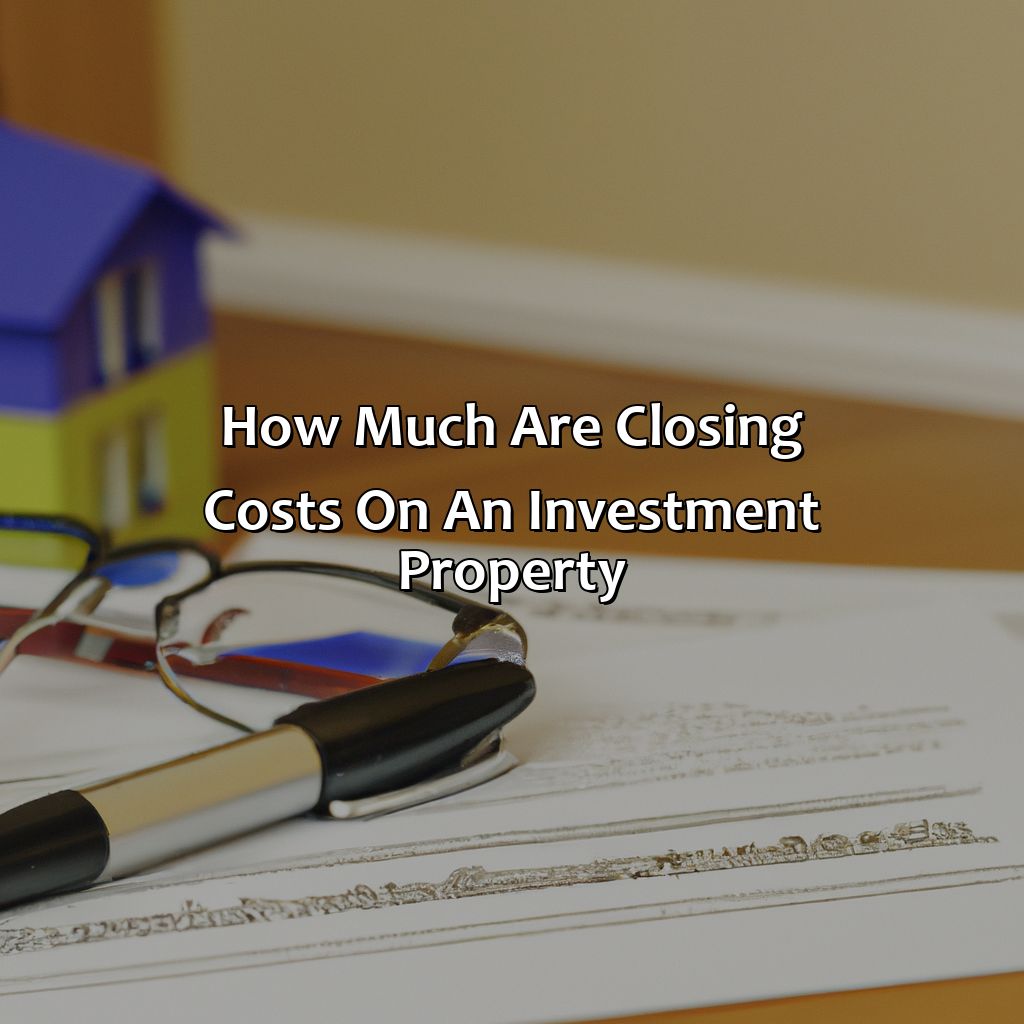How Much Are Closing Costs On An Investment Property?
Key Takeaway:
- Closing costs are fees that are paid by buyers and sellers at the time of closing for real estate transactions, including investment properties.
- Investment property buyers need to pay closing costs to finalize their purchase and secure the property. These costs can range from 2-5% of the purchase price of the property.
- Closing costs on an investment property can include appraisal fees, inspection fees, title search and insurance fees, attorney fees, loan origination fees, property tax fees, escrow fees, recording fees, transfer taxes, and miscellaneous fees. These fees vary and can be affected by factors such as location, property value, and loan type.
Tired of wondering how much closing costs will cost when buying an investment property? You’re not alone. This article will provide a comprehensive guide to the associated costs of buying an investment property and give you the tools to confidently move forward on your investment.
What are closing costs?
Closing costs refer to the fees and expenses associated with finalizing a real estate transaction. These costs may include but are not limited to property inspection fees, title insurance fees, appraisal fees, attorney fees, and taxes. Closing costs can vary based on the location and type of property being purchased.
When purchasing an investment property, closing costs can be significant. These costs can range from 2-5% of the property’s total purchase price. It is crucial to factor these expenses into the overall investment cost to determine the property’s actual profitability.
One unique detail to note is that some lenders may offer to cover a portion of the closing costs, while others may not. As an investor, it is essential to clarify these details with the lender before finalizing the transaction.
To reduce closing costs, investors may consider negotiating with the seller or finding alternative financing options. For instance, using a mortgage broker can help identify lenders who offer lower closing costs. Additionally, performing a thorough inspection of the property before the purchase can help identify any potential issues that may increase closing costs down the line.
Overall, it is vital to understand the closing costs associated with a real estate investment property to evaluate its profitability accurately.
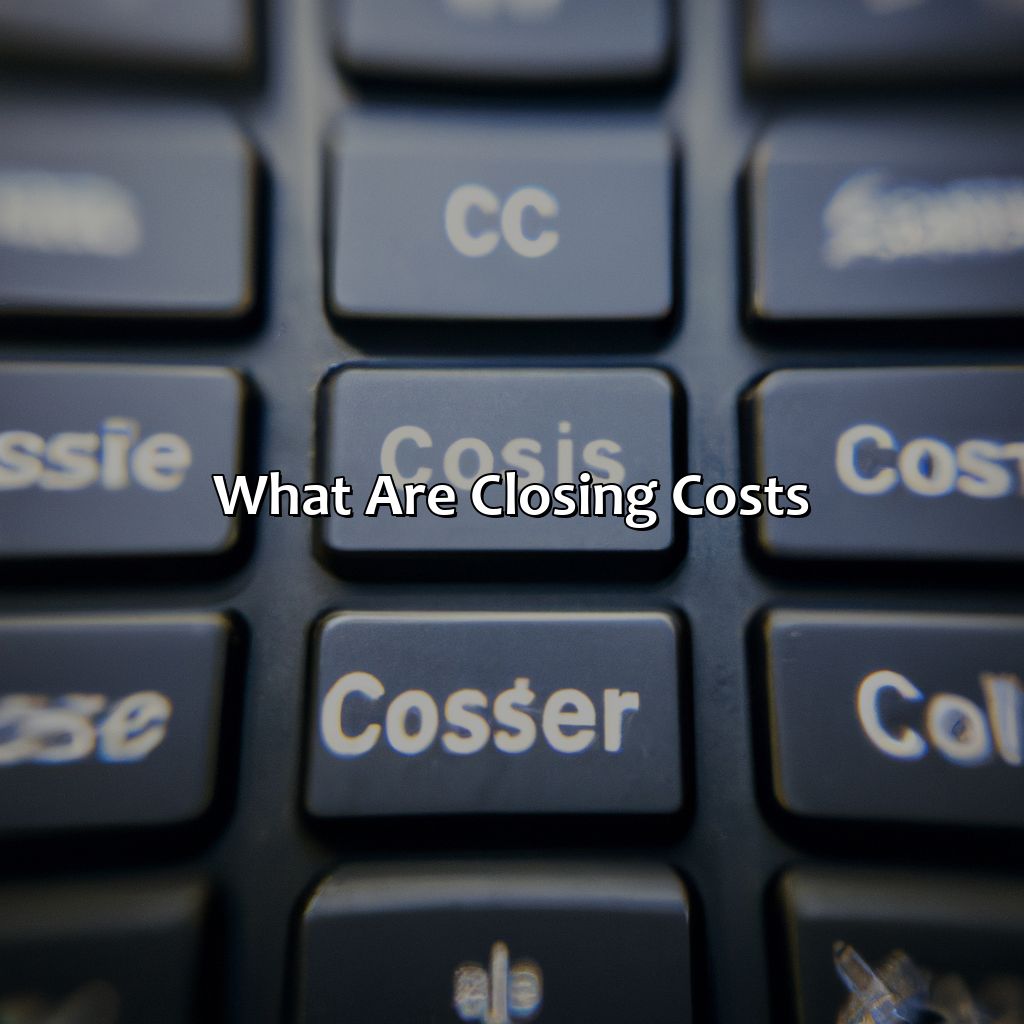
Image credits: retiregenz.com by Joel Duncun
Why do you need to pay closing costs on an investment property?
Closing costs are mandatory expenses you have to pay when you purchase an investment property. These costs are incurred during the final stage of the transaction, and they cannot be avoided. Property buyers need to pay the closing costs to cover various fees and charges, including property inspection fees, appraisal fees, title search fees, insurance, and attorney fees.
Generally, closing costs can be quite expensive, and they vary from one property to another. You need to have a comprehensive understanding of the various fees and charges associated with the purchasing process to avoid any unexpected costs. You can hire a real estate attorney to assist you with understanding these costs and negotiating with lenders to reduce them.
It’s essential to note that closing costs can impact your investment strategy; therefore, you need to opt for a property that is suitable for your investment plan and budget. Be sure to conduct a thorough research process before settling on a property that fits your budget and offers a significant return on investment.
Don’t let the cost of closing scare you away from making a great investment. However, it’s crucial to be aware of the implications of these costs, as they do add up and can impact your bottom line. Plan ahead and budget for these expenses to ensure you don’t miss out on a potentially great investment opportunity.
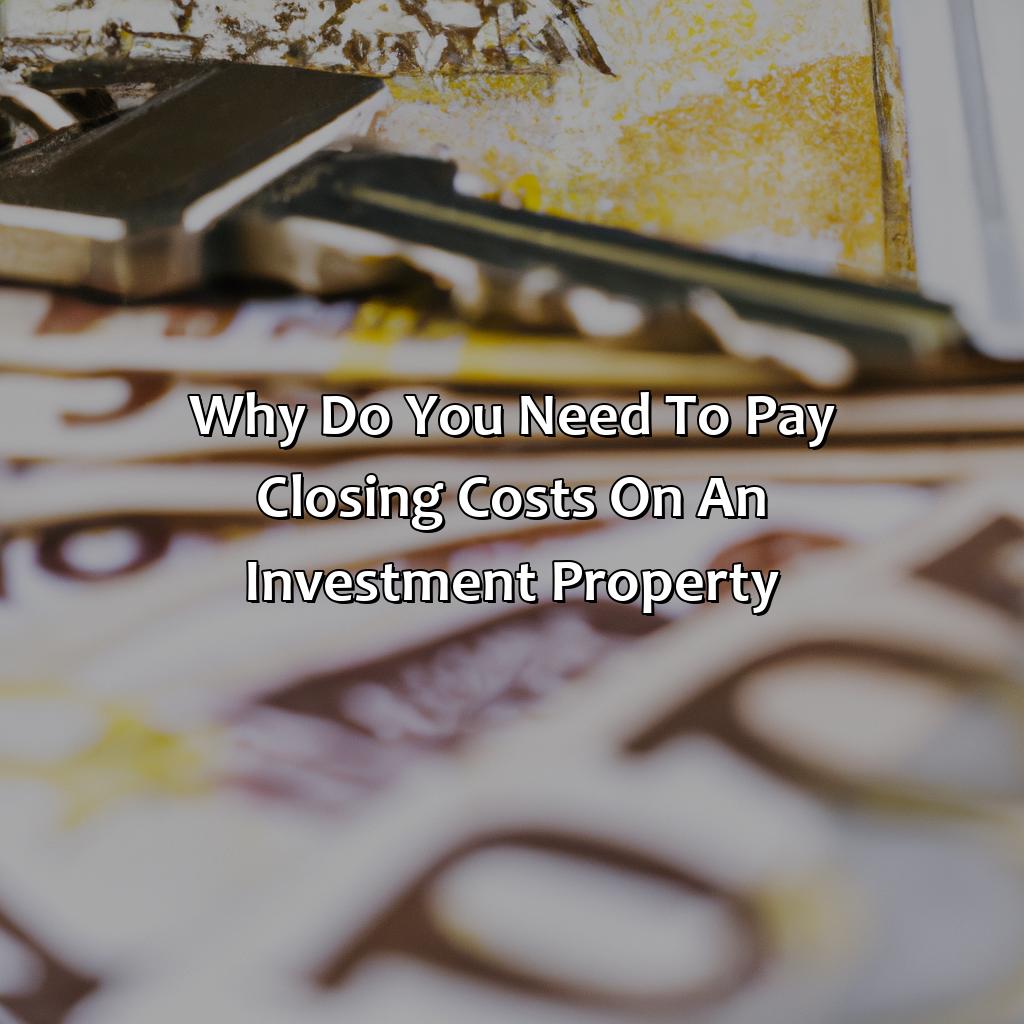
Image credits: retiregenz.com by Joel Arnold
How much are closing costs on an investment property?
Investment properties come with additional costs, including closing costs. These expenses can add up quickly, so it’s vital to understand the exact amount required before finalizing the purchase. Estimating these costs is difficult as it might vary depending on the location, lender, and other factors. However, it’s common to expect at least 2-5% of the purchase price as closing costs. Some of the expenses are property appraisal fees, title search, property taxes, and lender fees. It’s essential to factor in these costs when financing an investment property.
Moreover, finding a lender who specializes in investment properties can help cut down on closing costs. They might offer lower fees and costs, and may also help negotiate with appraisers or waive specific fees. Additionally, conducting due diligence and being mindful of specific state regulations could result in cost savings. It’s also integral for buyers to keep an eye on the loan process, double-checking all charges for accuracy, and contesting any errors.
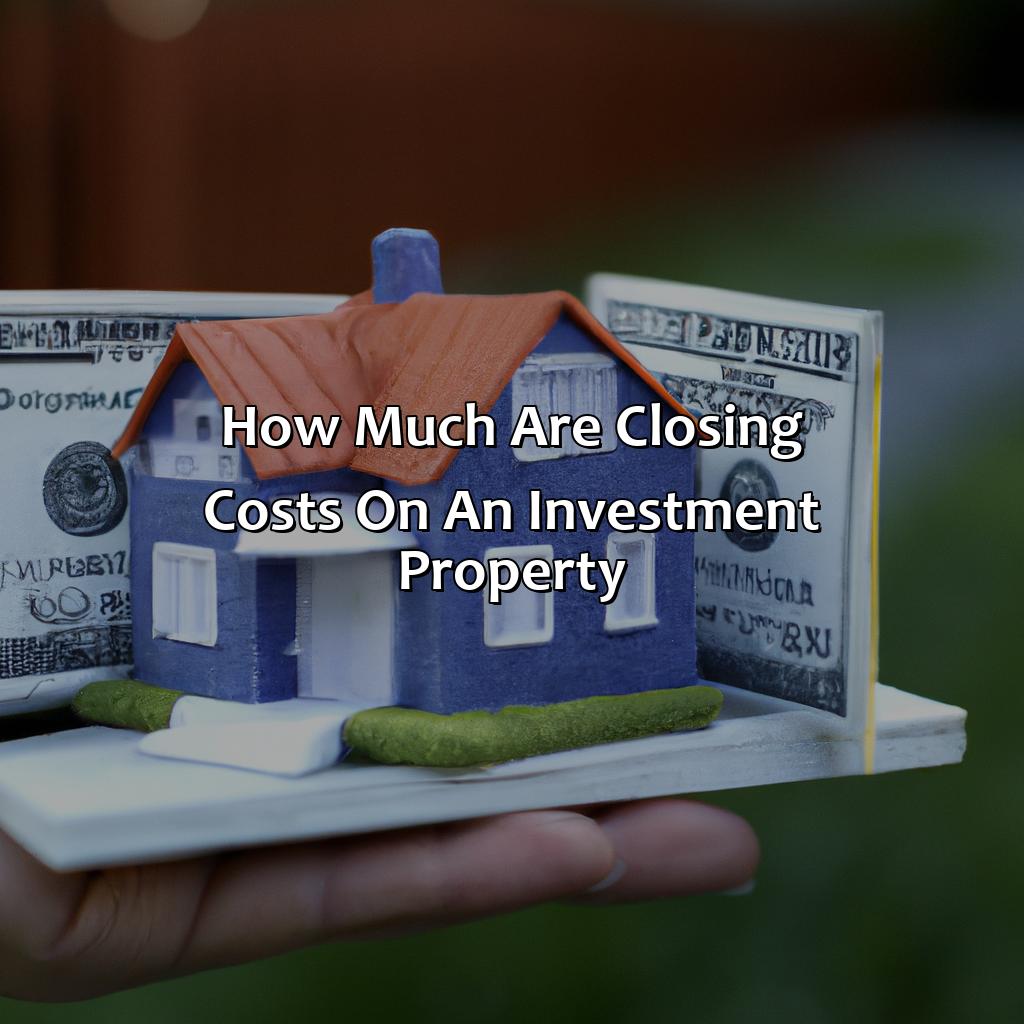
Image credits: retiregenz.com by James Washington
Factors that can affect closing costs on an investment property
In the world of real estate, there are several factors that can impact the closing costs on an investment property. Understanding these factors is crucial in determining the final amount of money that an investor will need to complete the purchase of their property.
The following table lists some of the factors that can impact closing costs:
| FACTORS | DESCRIPTION |
|---|---|
| Property location | The location of the property can affect closing costs due to state-specific fees and taxes. |
| Property type | The type of property will determine the amount of inspections needed, which can impact the cost. |
| Property value | The cost of closing will typically increase with the value of the investment property. |
| Loan type | Different loan types pose varying fees and costs, such as appraisal and inspection fees. |
| The type, amount, and place of purchase of title insurance can determine closing costs. |
It’s important to note that some additional factors may apply, depending on individual circumstances. For example, any necessary repairs or renovations may affect the closing costs of an investment property.
Interestingly, the concept of closing costs has been around since the early days of the real estate industry. In the past, however, these costs were typically absorbed by the seller rather than the buyer. It wasn’t until more recent years that this practice began to shift, leading to a more balanced approach to closing costs between buyers and sellers.
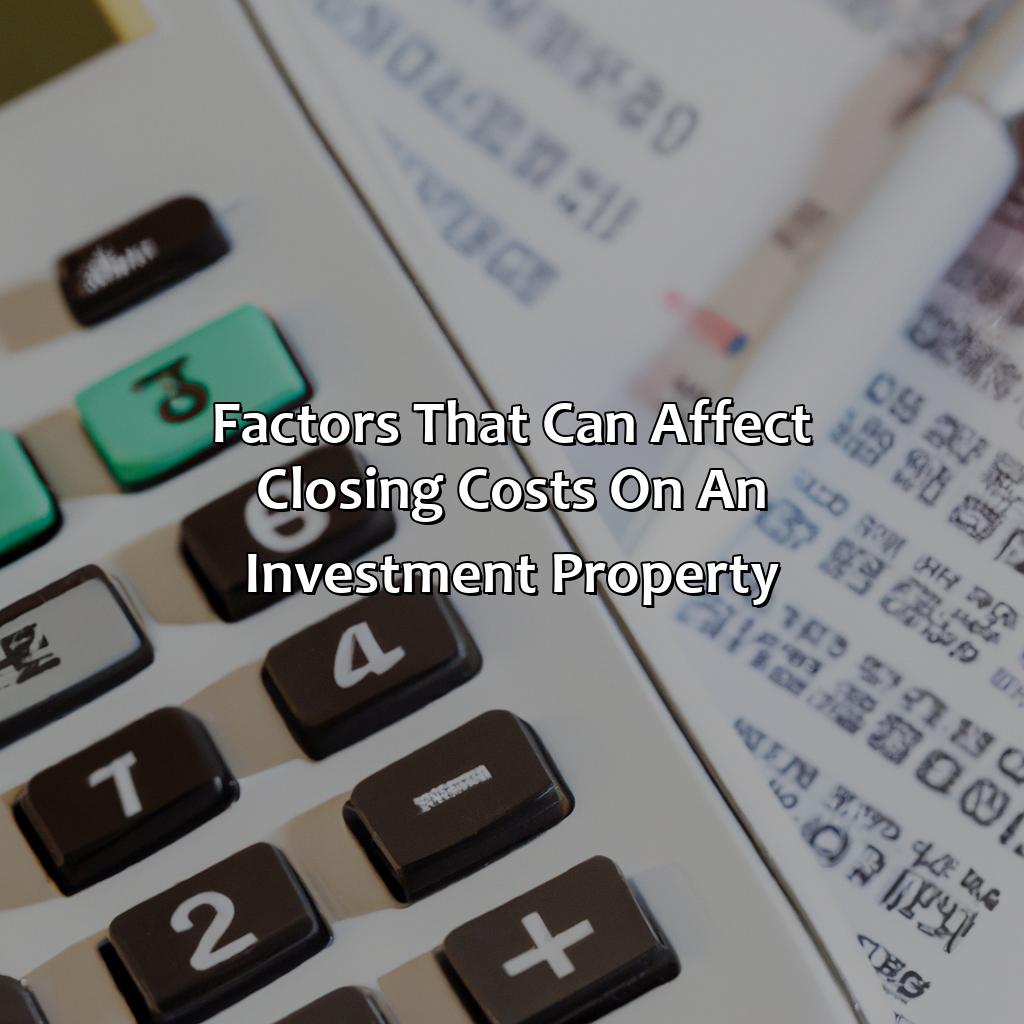
Image credits: retiregenz.com by Harry Duncun
How can you reduce closing costs on an investment property?
Investment property owners are always on the lookout for ways to minimize the closing costs associated with their properties. Here are three tactics to achieve that:
- Comparison shop for service providers like appraisers, inspectors, and title companies who offer competitive rates.
- Reduce or negotiate real estate agent fees if possible, as these can be a significant portion of closing costs.
- Consider using seller concessions or lender credits to cover some of the closing costs, depending on the terms of the sale and the loan.
In addition to these methods, it’s important to note that each property transaction is unique and may require a tailored approach to bring down closing costs.
It is important to remain vigilant, as closing costs can add up quickly. For example, a friend of mine almost gave in to a lender’s push to pay for a full year’s worth of property insurance upfront instead of on a monthly basis. Had he agreed, he would have spent more on closing costs than he saved. By reading the fine print, you can avoid these types of traps and ensure that your closing costs don’t eat into your investment property’s bottom line.
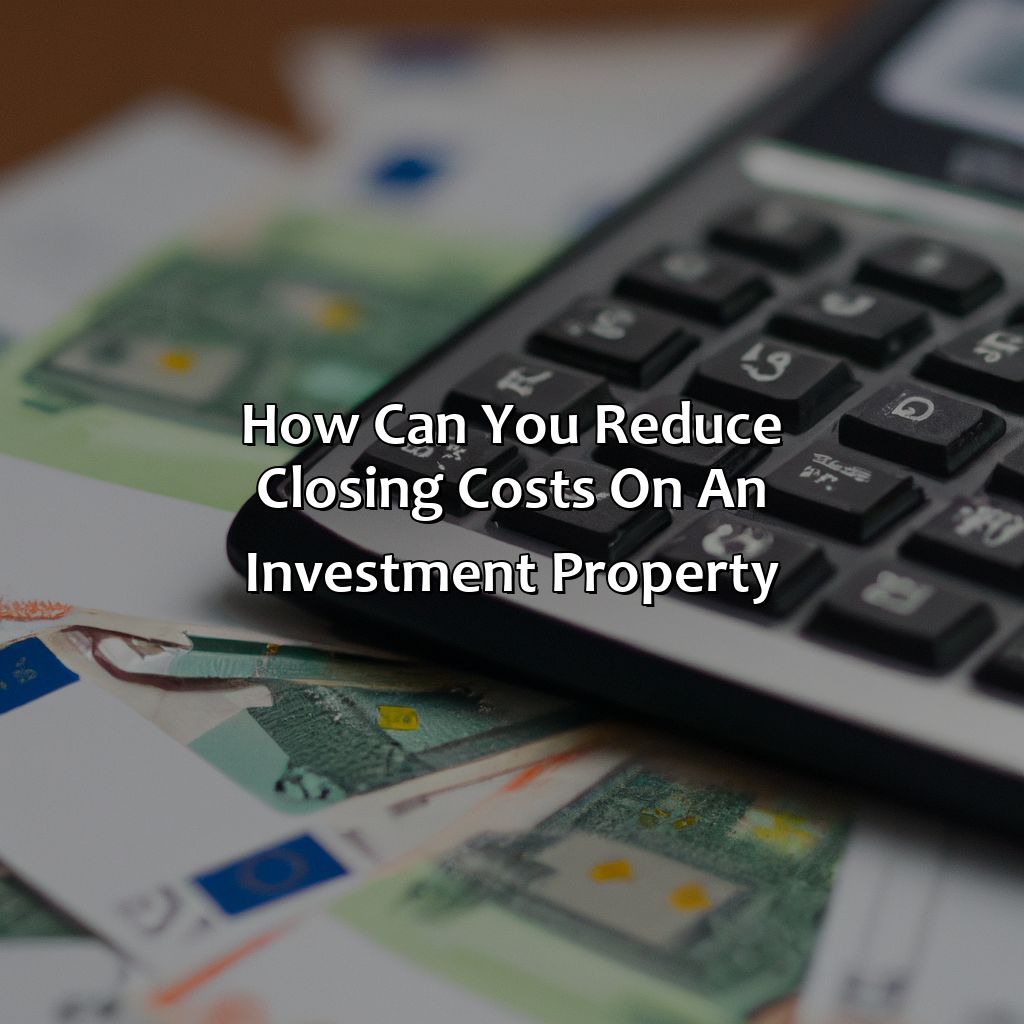
Image credits: retiregenz.com by David Woodhock
5 Well-Known Facts About How Much Are Closing Costs on an Investment Property:
- ✅ Closing costs on an investment property typically range from 2% to 5% of the purchase price. (Source: Bankrate)
- ✅ Some of the major closing costs include loan origination fees, title insurance, and property taxes. (Source: Forbes)
- ✅ The location of the investment property can also have an impact on the closing costs. (Source: The Balance)
- ✅ It can be possible for the buyer to negotiate with the seller to pay for part or all of the closing costs. (Source: Investopedia)
- ✅ It is important to factor in closing costs when calculating the total cost of the investment property and estimating the return on investment. (Source: Mashvisor)
FAQs about How Much Are Closing Costs On An Investment Property?
1. How much are closing costs on an investment property?
It varies based on location, loan type, and other factors. Generally, closing costs range from 2 to 5 percent of the purchase price. For a $250,000 property, this could mean between $5,000 and $12,500 in closing costs.
2. What costs are included in closing costs?
Closing costs typically include fees for services such as appraisal, home inspection, title search, title insurance, attorney fees, loan origination fees, and recording fees. These costs may vary depending on your location and the type of loan you have.
3. Can closing costs be negotiated?
Yes, some of the closing costs can be negotiated, especially the fees charged by third-party service providers. However, lender fees and certain government fees may not be negotiable.
4. Can I roll closing costs into my loan?
Yes, you may be able to roll some or all of your closing costs into your mortgage loan, depending on your lender and the type of loan you have. However, doing so will increase your overall loan amount and may also increase your monthly mortgage payments.
5. Are closing costs tax-deductible?
Some closing costs may be tax-deductible, such as mortgage interest, property taxes, and certain loan origination fees. However, it’s important to consult with a tax professional to determine which costs are eligible for deduction.
6. How can I estimate my closing costs?
You can estimate your closing costs by using online calculators or asking your lender for a Loan Estimate document. This document itemizes all of the expected costs associated with your mortgage loan, including closing costs.
